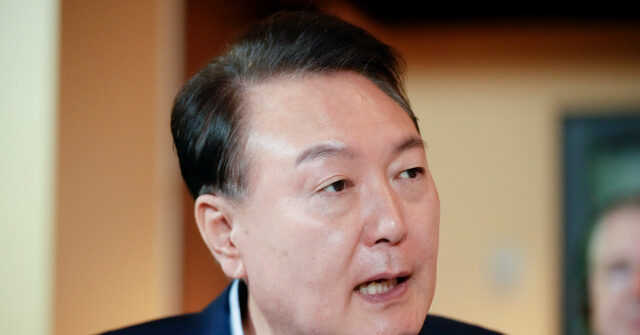The Seoul Western District Court on Tuesday issued an arrest warrant for impeached President Yoon Suk-yeol over his failed attempt to impose martial law in early December.
It was the first time South Korean courts have ever issued an arrest warrant for a sitting president.
Yoon is technically still the president, even though he was impeached two weeks ago and his powers were transferred to an acting president. The first acting president, Han Duck-soo, was himself impeached last Friday because opposition lawmakers said he was moving too slowly to complete the process of removing Yoon from office.
Yoon has immunity from arrest and prosecution until he is formally ejected from the presidency, with one exception: charges of insurrection. The joint investigation team working on Yoon’s case requested the warrant on precisely those grounds after Yoon ignored three attempts to summon him for questioning.
Yoon’s attorneys promptly asked the Seoul Western District Court to cancel the warrant on the grounds that the Corruption Investigation Office for High-ranking Officials (CIO) “does not have the authority to investigate an insurrection.” CIO is also investigating Yoon for abuse of power, which falls more comfortably within its legal mandate.
In addition to authorizing Yoon’s arrest, the court issued a search warrant for the president’s residence in Seoul’s Yongsan district. CIO said it plans to execute both warrants before they expire on Monday, but the last time the police tried to raid Yoon’s office, the president’s security detail blocked them.
The South Korean Presidential Security Service has the authority to block any search of a location that might jeopardize state secrets. The service said on Tuesday that it will take appropriate “security measures” in response to the new warrants, but did not clearly state whether it would prevent efforts to arrest Yoon or search his residence.
It would theoretically be possible for Yoon to avoid arrest by simply hunkering down in his home, or another location protected by the Presidential Security Service, because warrants must be served in person by law enforcement personnel under South Korean law.
The Korea Herald on Tuesday recalled how the former leader of the South Korean Democratic Party, Han Hwa-gab, avoided detention on corruption charges in 2004 by holing up in party headquarters while two hundred of his fellow legislators blocked the entrances with their bodies.
CIO Chief Prosecutor Oh Dong-woon has suggested he might charge Presidential Security Service agents with obstructing justice if they prevent the execution of further court warrants, setting up a potential clash between the agencies. Lawmaker Kweon Seong-dong of Yoon’s People Power Party (PPP) said it was “inappropriate” for the court to force such a conflict upon an uneasy nation.
“It would be more appropriate to coordinate opinions further and summon the sitting president instead of resorting to extraordinary measures such as an arrest warrant to detain the president,” Kweon said on Tuesday.
DP floor leader Park Chan-dae countered that Yoon’s party and protective services should “stop shielding the ringleader of the insurrection” and “actively cooperate in resolving the national emergency.”
Yoon’s lawyers strongly contested the assertion that his effort to impose martial law qualified as an “insurrection.” Lawyer Yoon Kap-keun told reporters on Tuesday that the president has “no intention to avoid or delay” lawful proceedings if the procedures are followed properly.
“He will cope with it fairly and legally if legal procedures are followed no matter who the investigating institutions are,” Yoon’s attorney said.
The president’s legal team further argued that he should remain immune to criminal proceedings until his impeachment has been upheld by the South Korean Constitutional Court.
This is the stage in the complex martial law drama that got Han Duck-soo impeached a week after he took over from Yoon, because the Court is currently short by three justices, so a single one of the remaining six justices could scuttle the impeachment by ruling against it. The DP accused Han of slow-walking the appointment of three judges nominated by the legislature, deliberately making it harder to get the required six votes on the Constitutional Court to remove Yoon from office.
Han’s successor as acting president, Choi Sang-mok, broke that deadlock on Tuesday by appointing two of the three Constitutional Court candidates put forward by the legislature. One of those candidates was put forward by the DP, the other by the PPP.
Choi said he would appoint the third candidate, DP-recommended Ma Eun-hyoek, if the PPP agrees to support him. Ma’s confirmation hearing on December 23 was boycotted by PPP legislators, but he expressed some skepticism about the grounds for impeaching Yoon during the hearing.
Read the full article here


